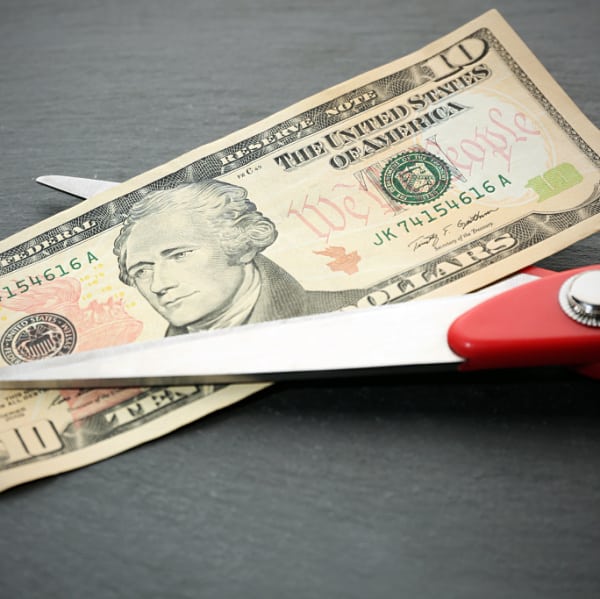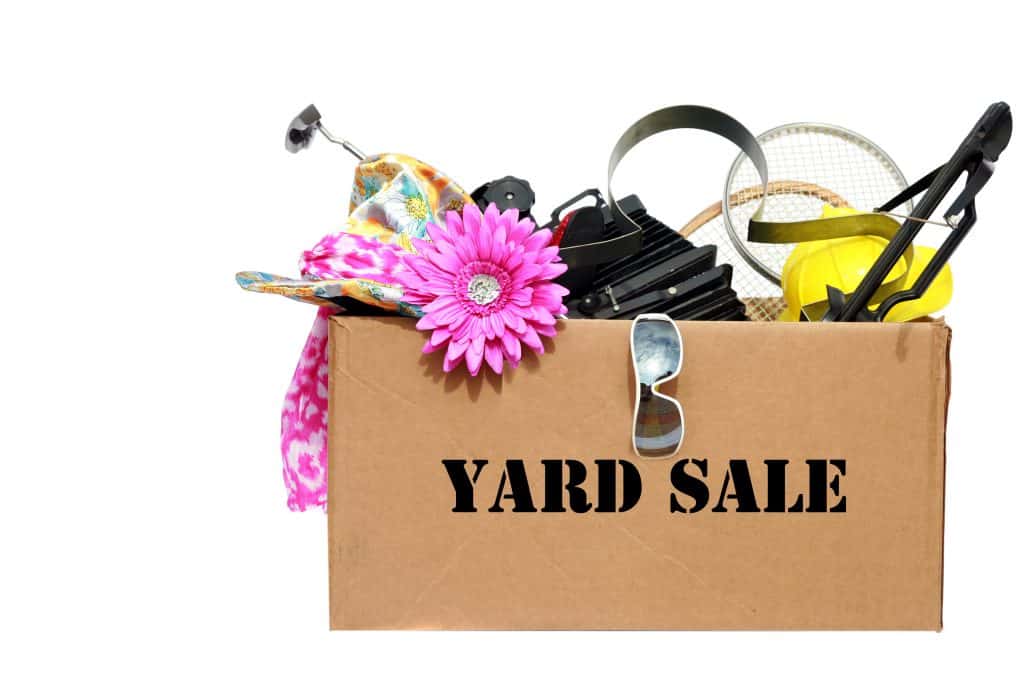A Mess Free Life may collect a share of sales or other compensation from the links on this page.
Over the last several months during our ongoing series on How To Develop A Spending Plan we’ve been looking at ways for you to save money and reduce your spending.
We’ve budgeted, created savings plans, and learned how to cut expenses. And hopefully you’ve been doing well with your spending plan and your budget is looking good.
But there’s always room to cut back, even more, live a little more frugally so that you have more money for things like saving and investing.
Living frugally allows you to live on less than what you earn and it also helps you live on less income should you lose your job or decide you want to start your own business.
Frugal living allows you to have more options and make choices based on what you want instead of what you need.
This month we’re looking at ways to cut back even further than what you already have. You may like some of these ideas and others may not be right for you.
That’s okay. There are enough options that you should be able to find at least a few that will help you save more money if that’s aligned with your goals.
Table of Contents
20 WAYS TO REDUCE YOUR SPENDING SIGNIFICANTLY
It’s not as hard as you may think to still enjoy a great life while being more frugally. One where you more quality time with your family, read, and get outside more. It allows you to focus on what’s important and spend your free time the way you want.
Here are some ways to cut back that will still allow you to enjoy life.
DOWNSIZE
While you may be able to afford the mortgage on a large house, that doesn’t mean you should buy one. Instead, choose as small a house as you can while still being comfortable. You can save thousands a year with lower utility bills and a smaller mortgage.D
Check out my article on how to lower your utility bill and save hundreds!
RENT INSTEAD OF OWN
Buying isn’t always the better choice. If you calculate your mortgage interest, the cost of insurance, and maintenance, buying can be more expensive than renting. Be sure to do some comparisons to make the best choice.
BUY USED
Shop garage sales, thrift stores and classifieds for furniture and other household items you need. Maybe a friend or family member has what you need and they’re not using it; ask around. Lots of people sell brand new or nearly brand new items at garage sales at on Facebook Market Place. You can save significant money by buying used and reducing your spending in categories like household items, office supplies and more.
GET A SMALLER CAR
You can save thousands with a smaller car that is less expensive to maintain and more fuel efficient. I know most of us love our big cars but if you work from home, or a bit older a smaller car could be just what you need to save significantly throughout the year. Plus a smaller car is much easier to keep clean.
Use my car cleaning tips to save more by doing it yourself.
PACK YOUR OWN LUNCH
Instead of eating out, pack your lunch. Pack leftovers from the night before to keep from wasting food. It’s incredible how much money we waste in food. 25% of what we bring into our homes is thrown away. This results in $2,500 for a family of four. Don’t throw it out – wrap it up and take it to lunch to reduce you spending on food.
EAT OUT LESS FREQUENTLY
Eating out can be expensive, especially if you do it often. The average person spends about $2,000 a year on eating out. Eat at home more often. Create a weekly menu and cook dinner as a family.
If you want to learn how to effectively meal plan, go here.
STOP SHOPPING AND REDUCE YOUR WARDROBE
Most of us have plenty of things to wear in our closets. Make a commitment to shop your closet for a period of time and see if taking the time to plan your cuts back on spending money at the mall. Plan your wardrobe so that your clothes can be mixed and matched to create completely different outfits. This will help reduce the need to buy more clothes throughout the year. Use accessories to change up your outfits and give you style.
USE A 30 DAY LIST
Reduce impulse purchase with a 30-day list. When there’s an impulse purchase you’d like to make, write it on this list, with the date. Then don’t buy it for at least 30 days. If you still want it, you can go back and buy it, but chances are you’ll find you don’t really want or need it.
Want other ways to outsmart the impulse buy?
BREAK UP WITH CABLE
Subscription streaming services are much less expensive and you can find just about any show you really want to see. You won’t miss a thing, but you’ll spend a lot less. My friend Kathy Spencer from the blog How To Shop For Free wrote a step by step instructional article on what to do and what you’d need to still get the cable channels you want.
GET A LIBRARY CARD
Check out books, DVD’s, and audiobooks at the library instead of buying them new. If you’re anything like me this one will be hard. I love books and I love to buy books, but I’ve started to realize that not all books are worth keeping. Now instead of purchasing every book I want to read, I only by books that I know I will use as a resource in my work later on. All other I get from the local library.
STOP AND TAKE A PAUSE
Before making an impulse purchase, ask yourself when and how will you use it? This will help you determine if you really need it. There’s also a series of questions you can ask yourself while you’re pausing that will help you to reduce your spending.
Check out my article to learn these series of questions to stop impulse purchases in their tracks.
FRUGAL GIFT GIVING
Learn how to make gifts instead of buying all of them. Pinterest will help you come up with lots of ideas for DIY gift giving. This is so important especially during the Christmas season. Gift giving can wreak havoc on your budget and put you in debt for months if you’re not careful and have a plan for how to handle holiday giving. In the series, 100 Days of Debt Free DIY Ideas, you can find so many creative solutions that don’t cost a fortune and will keep you on track during the holidays.
PAY WITH CASH OR DEBIT
Credit cards make buying too easy and can quickly get you in debt. And if you don’t pay the bill off every month, you’re also paying lots of interest. Pay with cash instead and try to avoid credit cards as much as possible. Paying with cash will automatically help you reduce your spending. It’s almost like magic how it works. My article on why cash is so crucial not only for getting out of debt but staying there is worth the read.
CANCEL SUBSCRIPTIONS
The number one way in which money leaks out of your bank account is with monthly or yearly subscription services. Most are not used. You can find the content of almost any magazine right on their website. Save yourself the $20-$30 annual subscription fee and go online instead.
DO IT YOURSELF
Instead of hiring someone to handle a project, clean your home, or mow the grass, try doing it yourself first. It may take some time and effort, but it’s satisfying and much less expensive. If you don’t know how to do it, search YouTube. No doubt you’ll find a how-to video there. The DIY approach isn’t for everyone but if it is for you it can help you significantly reduce your spending.
BATCH YOUR DRIVING AND ERRANDS
Remember when gas was almost $4.00 a gallon? Well, I learned a trick in batching my driving and planning my route to save the most amount of gas I could save. So instaed of going out three times a week, I’d go out once but plan my trip to travel the least amount of miles. This saved on gas, and time, by batching my errands and getting them all done at once instead of making several short trips. Give it a try and see how much you can save.
REDUCE CONVENIENCE FOODS
Prepared foods can be more expensive than buying the ingredients and making it yourself. They’re also higher in calories and sodium. Skip the frozen foods and ready-made meals whenever possible. Jun food costs more too so avoid that as a way to reduce your spending.
PLAN AHEAD
Try to make a habit of thinking ahead to things that are coming up and how you can save money. For instance, if you plan your meals in advance and create a grocery list, you can shop while you’re running errands. If you know there’s a birthday coming up, you can make a gift instead of shopping last minute. One of the best ways I have found to save money is by using my Living Well Planner. Because it has everything in one place – budget, meal planning, project planning, goal setting – I miss nothing. It’s been a real money and time saver for me.
Learn how a life planner can really change your life.
CONCLUSION
Learning to live a little more frugally will allow you to have more money for the things you really want. Making just a few cuts can make a big difference in your money. By using these money-saving strategies, you can reduce your spending significantly and still live exactly as you want.





